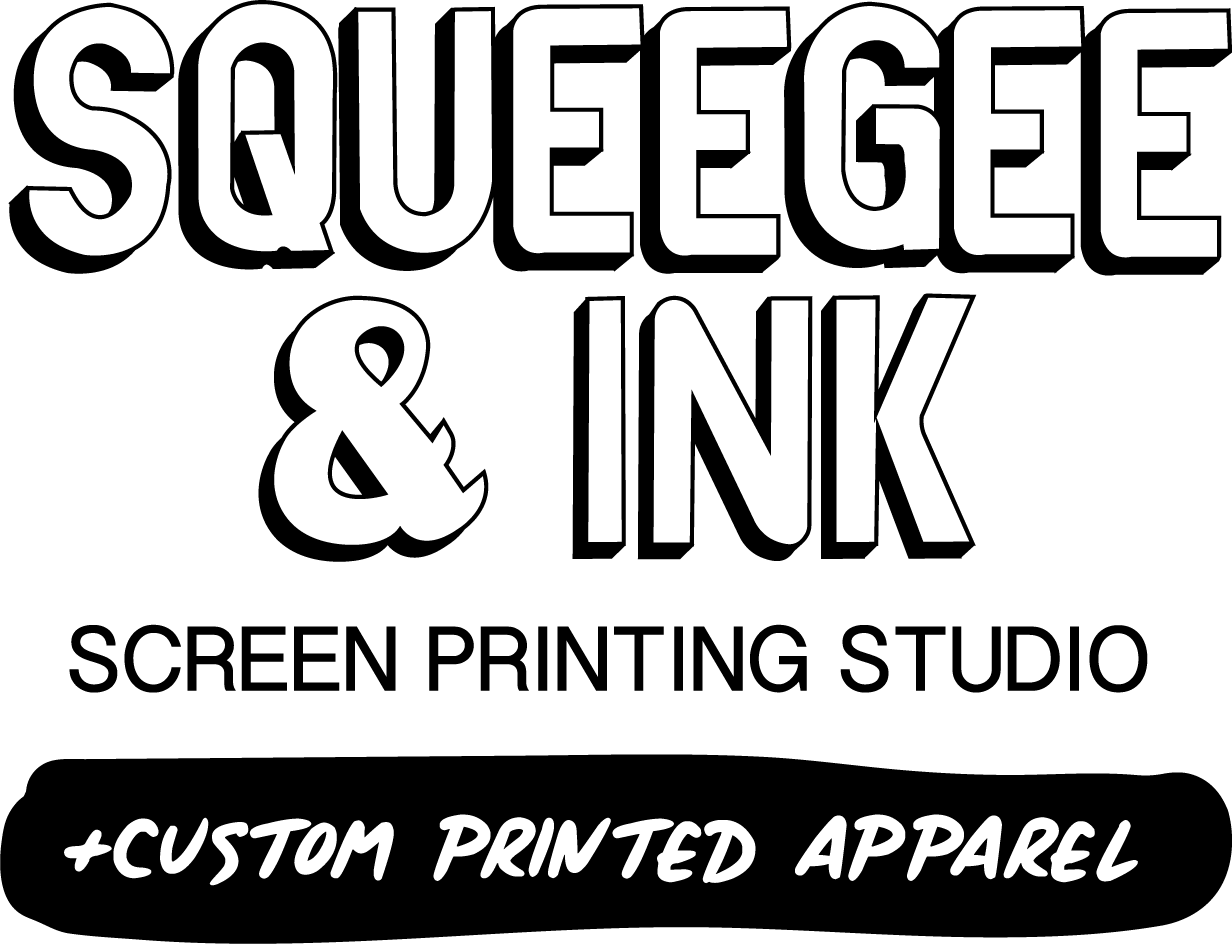HOW LONG SHOULD I EXPOSE MY SCREEN FOR?
Screen exposure time is one of the most asked questions with new screen printers. We have all asked the question only to find the most frustrating truth, that your exposure time is unique to your set up.
Exposure time is not the only factor to take into consideration. If you can perfect your preparation, then your exposure time will follow naturally. Here are our 5 top tips for exposing screens with UV light and photosensitive emulsion.

TIP 1: FILM POSITIVES
This is the most important part of your exposure! If you have good film positives, then you’re likely to have a good exposure. Your positives need to be 100% dense black ink. If you’re thinking “can’t I just double up my positives to make it denser?” Then you’re not getting the point. If you want to achieve a good exposure, stop cutting corners and put the work into perfecting your positives!
To achieve solid black acetates we use a wide format, Epsom inkjet printer in conjunction with a rip software called ‘Acurip’. We also converted our printer to have an all black system for best results.
If you want more information on the method we use to create dense acetates specifically for screen printing, check out our course here : How to expose a screen for screen printing. Chapter 1 explains our film positive method in full. Watch the course for FREE by signing up to Skillshare for your first months free membership.
We can also print your film positives for you! Check it out below;
TIP 2 : EMULSION
This tip isn’t just about the TYPE of emulsion but the entire process of mixing, coating and drying your screens. If you can get this correct, then your exposure has a better chance of success.
You need to get your hands on some good, professional emulsion. We prefer the dual cure emulsion which comes in 2 parts. We often use Screen Sol QT – Use our discount code CRP5 for some money off!
Once you have mixed your emulsion you need to leave it in a dark cool place – if you need some direction on how to properly mix your emulsion, check out our tutorial video here : How to mix photosensitive emulsion.
When coating your screens you should do this in a ‘light safe’ area. This means applying yellow UV blockers on your lightbulbs to stop the UV slowly exposing your emulsion prematurely. Once your screen is coated, make sure to dry it flat (flat side down) and in complete darkness. Wait for the screen to be 100% dry before going to expose.

TIP 3: UNDERSTAND YOUR EXPOSURE UNIT
There are so many different types of exposure units available. The best tip is to understand exactly how your exposure unit is going to expose your screens, for example, does your unit have a vacuum blanket attached? If not, you will need to find something to weigh down your screen onto the glass – You must create perfect contact between the mesh, acetate and glass for a good exposure.
Another thing to take into consideration is the light source of your exposure unit. Do you have LED bulbs or Metal Halide bulbs? Your light source may work better with different types of emulsion.
When you understand the limitations of your exposure unit then you can start to dial in your exposure method and time. You can also use our FREE exposure calculator which can be used on most exposure units.
TIP 4: USE THE TRIAL AND ERROR METHOD
Although our exposure calculator is good, sometimes it’s easier to just go for it! Try exposing your screen for 4 minutes… When you wash it out, take note of what is happening and adjust your exposure time from your results.
An UNDER-EXPOSED screen will be slimy and will wash away easily. Whereas an OVER-EXPOSED screen will be difficult to wash out and you will see the design starting to blur on the edges.

TIP 5: LEARN MORE BY TAKING OUR COURSE
You can download our course directly from our website or stream it for FREE by signing up to SkillShare for your first months premium membership.
When enrolling onto this course you will learn the full process of exposing screens with photosensitive emulsion. You will learn common problems and how to troubleshoot them and also how to find your own exposure time.
NEED MORE HELP?
We expose screens for our customers. Check out our ‘Pre-Exposed Screens’ here :
PLEASE SUPPORT OUR BLOG!
========================

We fund our blog and YouTube channel by selling our Blind Maggot t-shirts. Please help and support us by purchasing a shirt. As a thank you, we are giving all of our squeegee viewers £10 off our limited edition t-shirts!
GET £10 OFF LIMITED EDITION T-SHIRTS DISCOUNT CODE : SQUEEGEE
Check out all of the designs here and keep watching our YouTube channel to find out how we printed them: https://www.blindmaggot.co.uk/collections/limited-edition
> BUY A SHIRT HERE <
THIS BLOG IS SPONSORED BY:
BLIND MAGGOT.CO.UK
Buy ‘Blind Maggot’ limited edition t-shirts here:
https://www.blindmaggot.co.uk/collections/limited-edition
GET £10 OFF USING DISCOUNT CODE : SQUEEGEE
INSTAGRAM
@blind_maggot https://tinyurl.com/3exxma6z
@squeegee_and_ink https://tinyurl.com/m52wej83
TIKTOK
@blind_maggot https://tinyurl.com/pc79vzdj
@squeegee_ink https://tinyurl.com/5cmnsw4b







